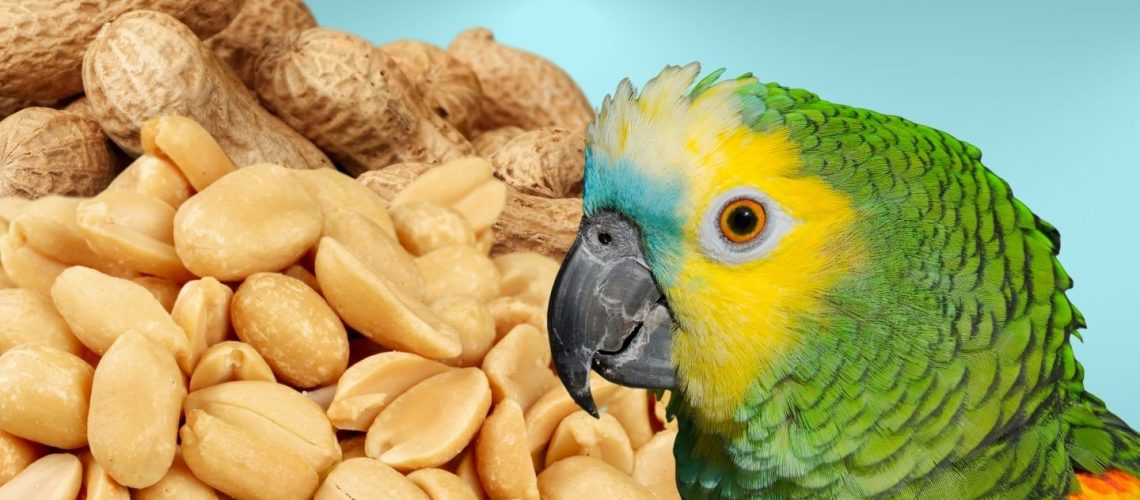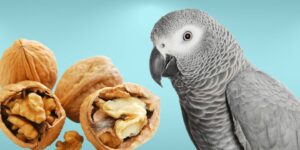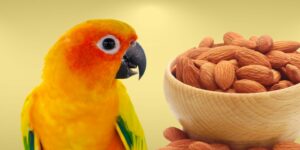Yes, birds can eat peanuts as a supplementary food source. Feeding peanuts to birds can provide various health benefits but it should be done in proper moderation and with necessary precautions. In this article, we will discuss the types of peanuts suitable for birds, how to feed them properly, which bird species enjoy peanuts, potential concerns, tips for feeding peanuts to birds, and how to prevent potential problems when offering peanuts to your feathered friends.
Why peanuts for birds?
Peanuts are a good source of protein, fat, and other essential nutrients, making them an attractive additional food source for birds. However, peanuts should not be the primary source of nutrition for birds and should be fed in moderation as part of a balanced diet.
Health benefits of peanuts for birds
Some health benefits of peanuts for birds include providing them with energy and essential nutrients, improving their overall health, and potentially attracting various bird species to your garden or bird feeder.
Potential concerns when feeding peanuts to birds
It is crucial to monitor birds' peanut intake and avoid overfeeding peanuts, as they are high in fat and can lead to obesity in certain bird species. Spoiled peanuts can also make birds sick, so ensure the peanuts or peanut butter offered to birds are fresh and unsalted.
Types of peanuts suitable for birds
Raw peanuts
Raw peanuts are a suitable choice for birds, as they are free from any additional salts or oils that may be found in processed peanuts.
Roasted peanuts
Roasted peanuts can also be fed to birds, but ensure they are unsalted and unflavored as added ingredients can be harmful to birds.
Peanut butter
Unsalted and natural peanut butter can be offered to birds by spreading it on a feeder or offering it in a dish. Avoid peanut butter with added sugars or preservatives.
Peanuts in birdseed mixes
Birdseed mixes that contain peanuts provide birds with a balanced diet and encourage a variety of bird species to visit your feeder.
Peanuts and suet cakes
Peanuts can also be offered to birds combined with suet cakes, providing a high-energy food source, especially during colder months.
Proper ways to feed peanuts to birds
Peanut feeders
Peanut feeders are specifically designed to hold peanuts and are available in various styles, such as mesh or tube feeders. Choose a feeder that is easy to clean and refill.
Mixing peanuts with other seeds
Adding peanuts to a seed mix can attract different bird species and provide a variety of nutrients to the birds.
Creating peanut treats for birds
Peanut butter pine cones
Smearing unsalted peanut butter on a pine cone and rolling it in birdseed makes a tasty treat for birds that can be hung outside.
Suet cakes with peanuts
Adding peanuts to suet cakes is another enjoyable treat for birds, offering them a high-energy food source.
Bird species that enjoy peanuts
Peanuts are enjoyed by various bird species, including woodpeckers, blue jays, titmice, chickadees, cardinals, nuthatches, and magpies.
Birds that should avoid peanuts
Certain bird species prone to obesity or with dietary restrictions should not be fed peanuts, as they are high in fat content.
Tips for feeding peanuts to birds
- Monitor portion sizes; only a small handful of peanuts per day for smaller birds such as finches or sparrows. For larger birds like doves or crows, still monitor their intake and avoid overfeeding.
- Avoid salted or flavored peanuts.
- Store peanuts properly in airtight containers to keep them fresh and prevent spoilage.
- Feed peanuts during specific seasons, such as winter when birds require extra energy and natural food sources are scarce.
How to prevent potential problems when feeding peanuts to birds
- Clean up spilled peanuts or peanut shells regularly to avoid attracting rodents.
- Be vigilant of possible peanut allergies in birds.
- Ensure the freshness and quality of peanuts by properly storing them and regularly checking for spoilage.
Conclusion
Feeding peanuts to birds responsibly and in moderation can provide many health benefits and attract various bird species to your garden or bird feeder. With proper portion control, avoiding salted or flavored peanuts, and ensuring the freshness of peanuts, you can safely enjoy the benefits of feeding peanuts to birds as part of a balanced diet.




